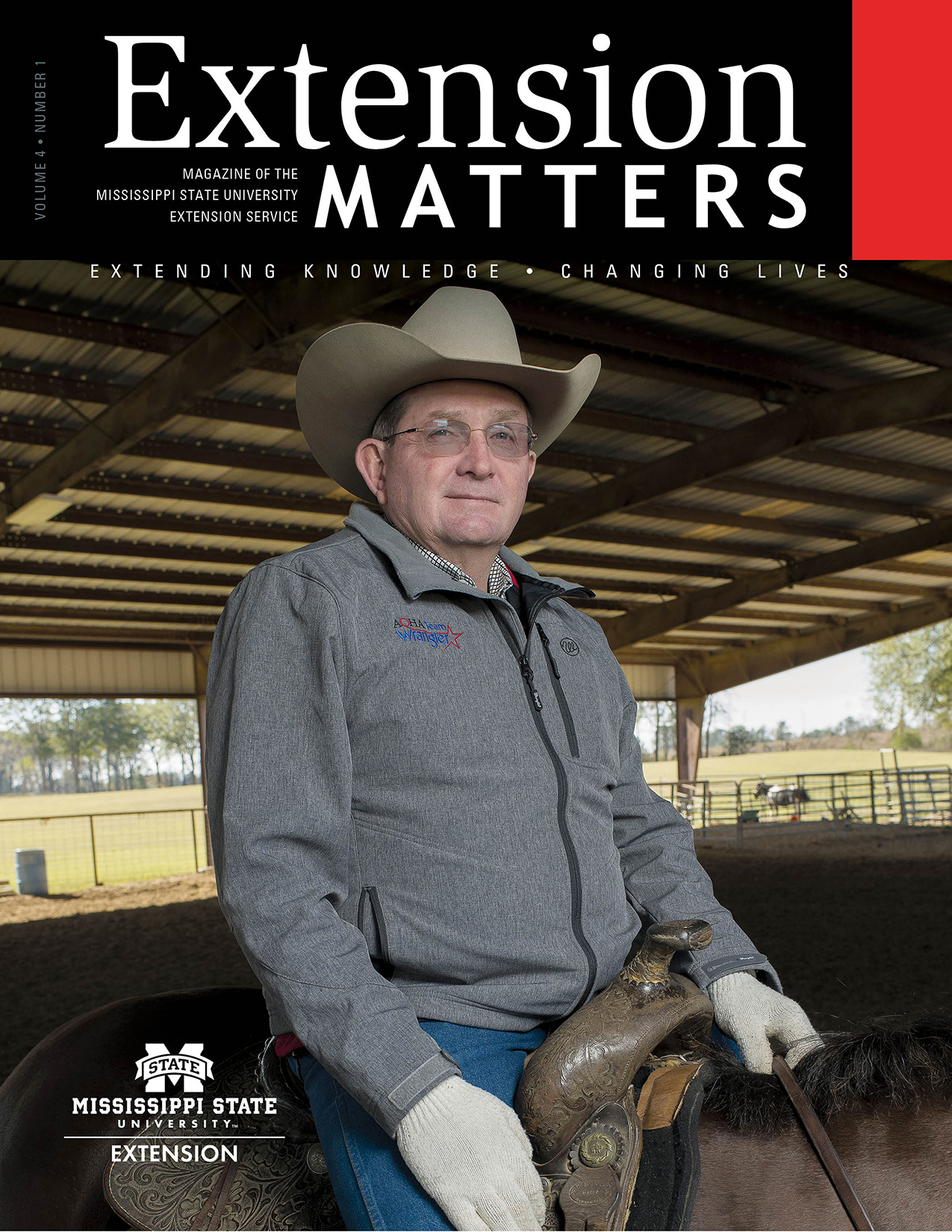What's New
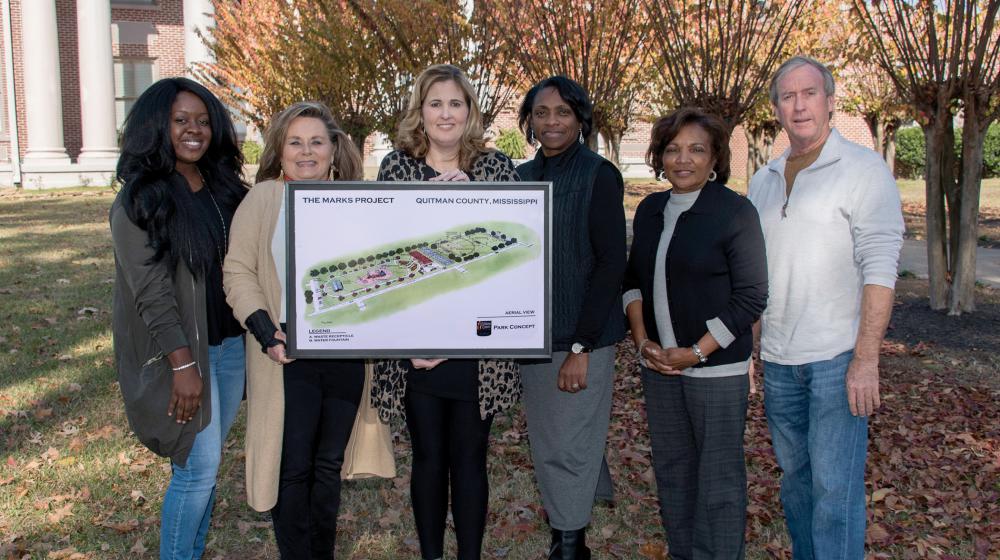
Improving Mississippi's Fiscal Health
Photo by Kevin Hudson
As rural communities’ populations decrease and more jobs become automated, leaders of one small Mississippi town are brainstorming to find ways to reinvigorate their neighborhoods and improve their quality of life. Officials of Marks in Quitman County have banded together for The Marks Project, an effort to return jobs and people to their community.
The Mississippi State University Extension Service is just one of many The Marks Project partners, including businesses, volunteer organizations, and individuals. Participants in The Marks Project are also working to address food insecurity issues; with no grocery store in the area, residents need access to healthy, fresh food. Extension works with officials at the local food bank and sponsors nutrition and cooking courses to educate local residents. Other members of The Marks Project meet with prospective supporters to share the group’s accomplishments and progress.
Discover more at The Marks Project’s official website.
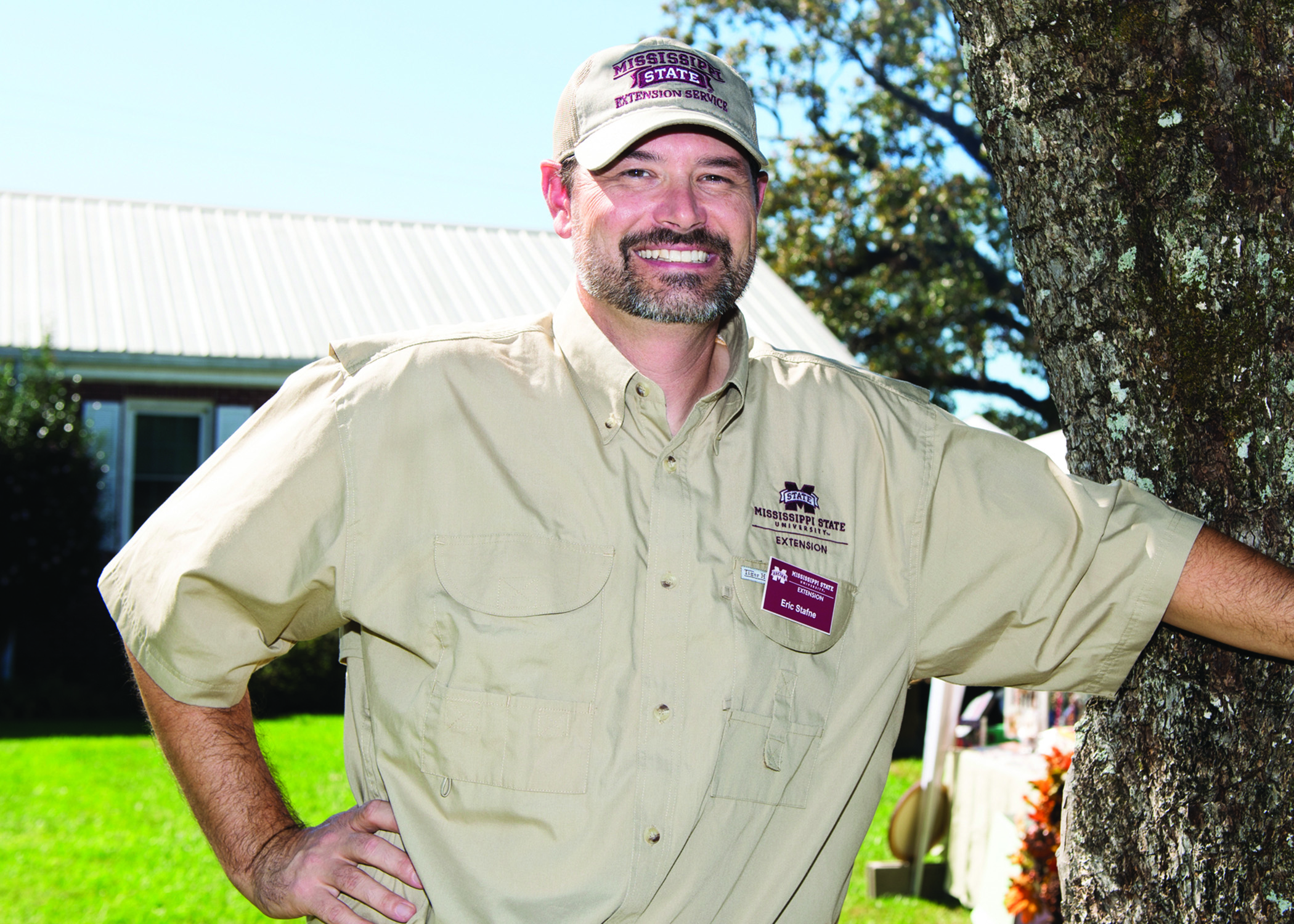
DIY Course Inspires Home Winemakers
Photo by Beth Wynn
The Fall 2017 Growing, Making, and Improving Wines workshop was dedicated to Dr. Boris Stojanovic, the first director of the Mississippi State University A. B. McKay Food Research and Enology Laboratory, and his wife, Betty. While the MSU Extension Service has been equipping home winemakers with relevant information on the topic since 1976 when state law first allowed it, the workshop reflects Extension’s recent return to offering residents educational workshops on the topic.
Dr. Eric Stafne and Dr. Juan Silva, professors with Extension and the Mississippi Agricultural and Forestry Experiment Station, gave presentations on grape varieties, vine-management techniques, and postharvest management. Enology specialist Ellen Butz followed them with a winemaking and equipment demonstration. Certified wine specialist Melanie Hankins Booth closed with a session on wine appreciation.
Sponsors for the workshop included Extension, MAFES, the Mississippi Department of Agriculture and Commerce, the MSU Department of Plant and Soil Sciences, and the MSU Department of Food Science, Nutrition, and Health Promotion.
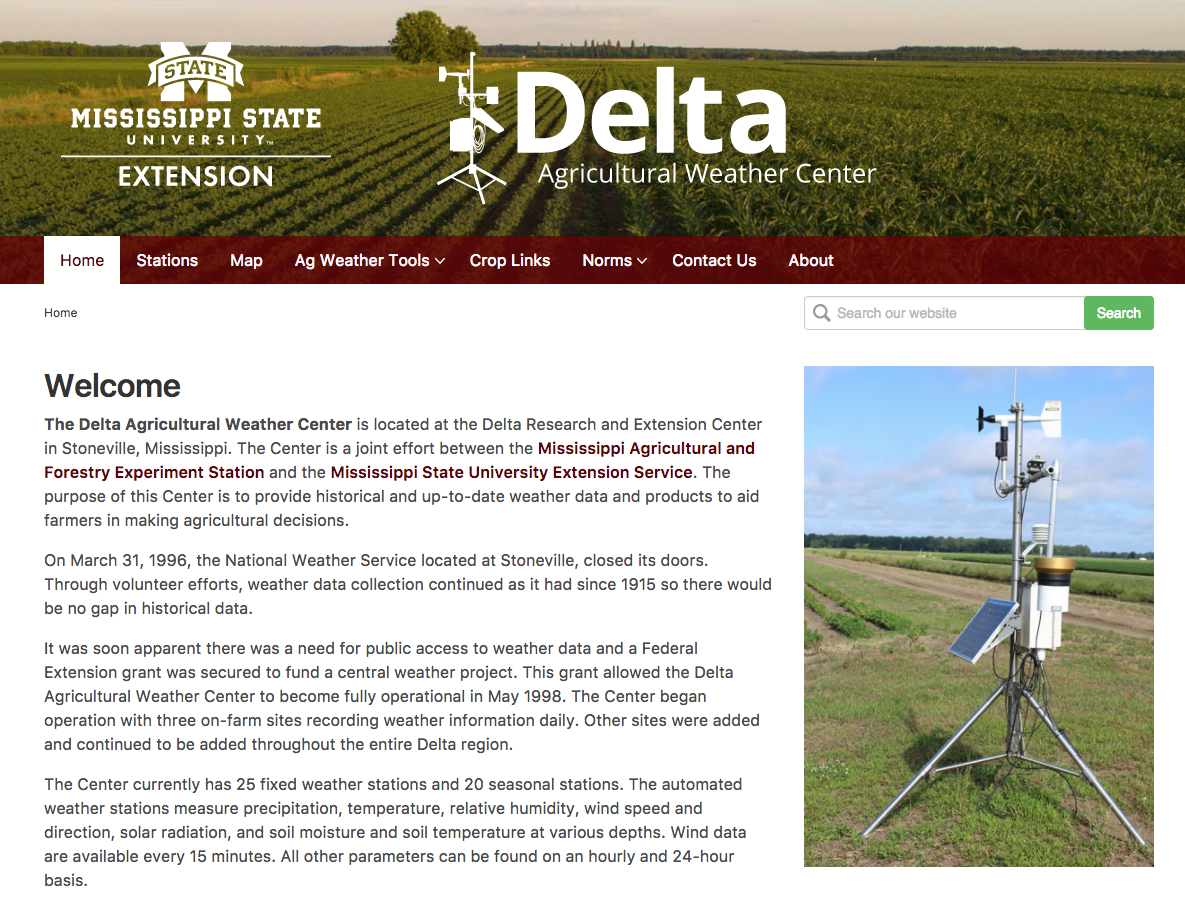
Real-Time State Weather Data Now Available
The Delta Agricultural Weather Center launched its real-time weather data website just as Mississippi producers completed the 2017 harvest.
The site, http://deltaweather.extension.msstate.edu, is updated every 15 minutes. It offers real-time, year-round temperature, rainfall totals, and wind speed and direction data to help producers make crop decisions.
The website’s responsive design works on all types of devices, including smartphones, computers, and tablets. Users may customize data reports from a choice of 15 stationary weather stations, and the website includes data collected from numerous mobile weather stations set up at Mississippi State University crop variety trial locations around the state.
The Delta Agricultural Weather Center is a joint partnership funded by MSU Extension, Mississippi Agricultural and Forestry Experiment Station, Mississippi Corn Promotion Board, Cotton Incorporated, Mississippi Rice Promotion Board, and Mississippi Soybean Promotion Board.
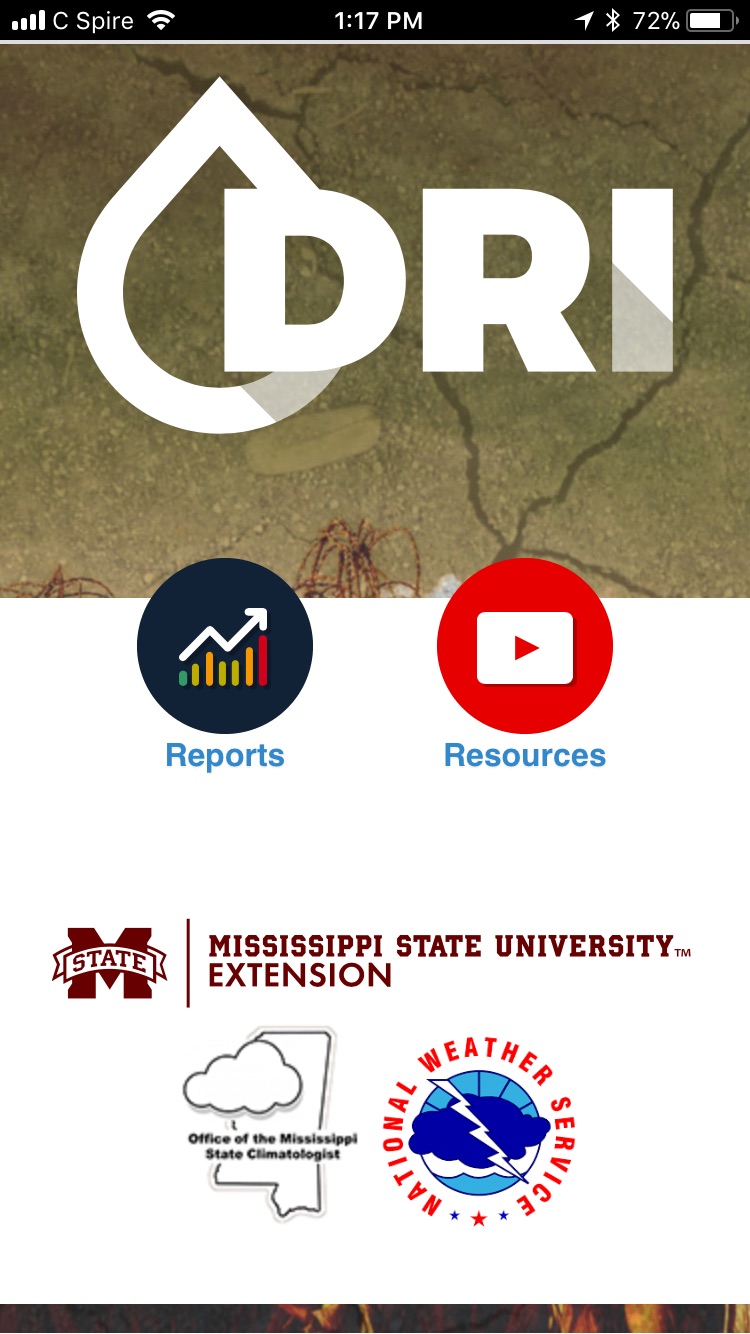
Extension Agents to Report Drought Conditions
When the National Drought Mitigation Center (NDMC) identifies drought and its corresponding severity, producers can sometimes be eligible for low-interest loans. However, if the drought is never recorded by the NDMC, as happened in some Mississippi locations in 2015, then farmers are not able to access financial assistance.
To address this issue, State Climatologist Dr. Mike Brown worked with the Mississippi State University Extension Service to develop an app for trained Extension agents to record drought conditions in the field. The Extension Center for Technology Outreach developed the app, and agents began using it at the close of 2017.
The trained Extension agent inputs the date, county, and rate of drought. Then, the agent uploads at least one picture to illustrate the conditions. As agents input conditions around the state, the app populates a map that compiles the information in a comprehensive report that informs Brown’s ultimate reports to the NDMC.


